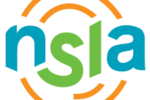Editor’s note: This story on how to manage academic integrity as generative AI moves into classrooms originally appeared on CoSN’s blog and is reposted here with permission.
With AI dominating conversations among education leaders, the importance of managing expectations and academic integrity is now more critical than ever as the new school year commences. Most districts are realizing that straightforward banning of ChatGPT and other tools only keeps the students without home access and data plans from using A toolsets. Certainly, none of us want to create additional digital inequities. However, as students leverage generative AI for assignments and “Cheat detectors” prove ineffective in detecting AI-generated output, school administrators must take proactive measures to safeguard the authenticity of student assignments and promote ethical use.
Create your Free Account to Continue Reading
eSchool News is Free for qualified educators. Sign up or login
to access all our K-12 news and resources.
Please confirm your email address
More News from eSchool News
Want to share a great resource? Let us know at submissions@eschoolmedia.com.
- SEO Powered Content & PR Distribution. Get Amplified Today.
- PlatoData.Network Vertical Generative Ai. Empower Yourself. Access Here.
- PlatoAiStream. Web3 Intelligence. Knowledge Amplified. Access Here.
- PlatoESG. Carbon, CleanTech, Energy, Environment, Solar, Waste Management. Access Here.
- PlatoHealth. Biotech and Clinical Trials Intelligence. Access Here.
- Source: https://www.eschoolnews.com/digital-learning/2023/10/10/generative-ai-academic-integrity/













